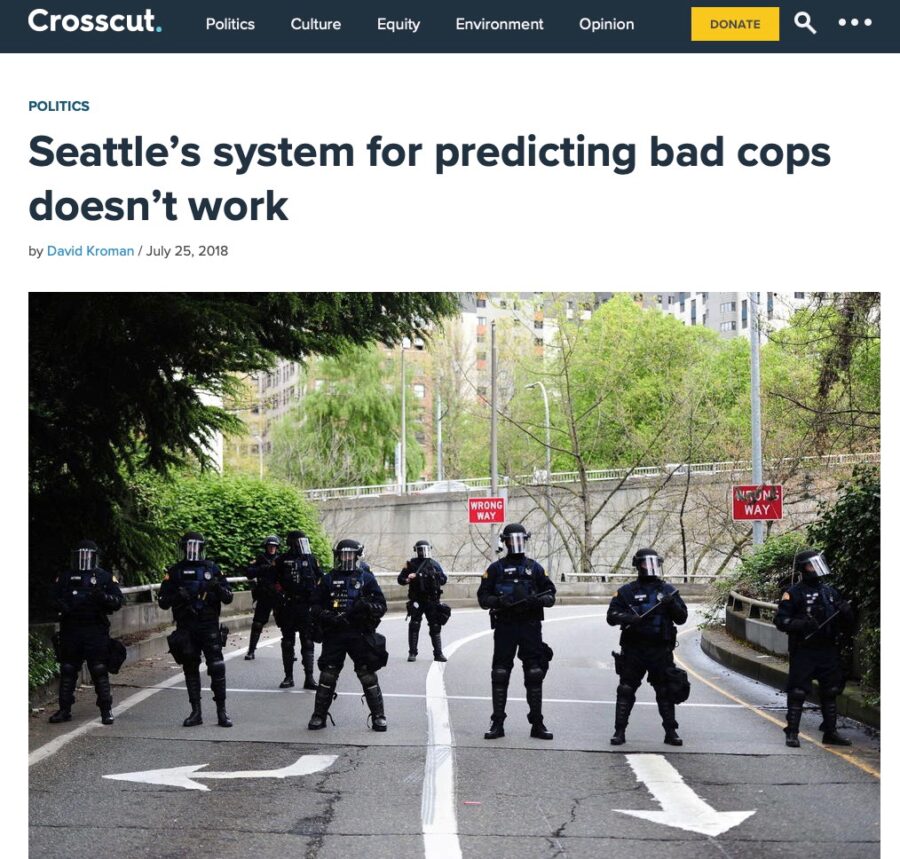Maxey with SPD said that the system has had a real effect on officer morale; although being flagged does not warrant discipline, officers sometimes feel they’re being punished and are unclear why. “Because it isn’t working as intended, but it’s still viewed as legitimate [by officers], I think it damages our credibility in managing our department,” he said.
As a result, the department has expressed an interest in moving away from its current system. “What we’re advocating for is finding some way of monitoring and punishing behavior as opposed to monitoring and punishing outcome,” said James. “An officer can do everything right and have a bad outcome. On the flip side, an officer can do everything wrong and it can turn okay.”
The department for its part has proposed monitoring something less tangible: traumatic events. Repeated exposure to traumatic or high stress events may cause varying levels of PTSD, meaning in future incidents that officer may be more likely to quickly escalate the situation. Maxey pointed to the officer in Texas who brutalized Black teenagers at a pool party. His long shift and exposure to stressful events prior should have been a warning, he said.
In the meantime, the department is not shedding the system yet, but has requested permission from the federal judge overseeing reforms to adjust. “We will not eliminate our early intervention system until we have something that is actually useful and better to replace it,” said Maxey.
https://crosscut.com/2018/07/seattles-system-predicting-bad-cops-doesnt-work


